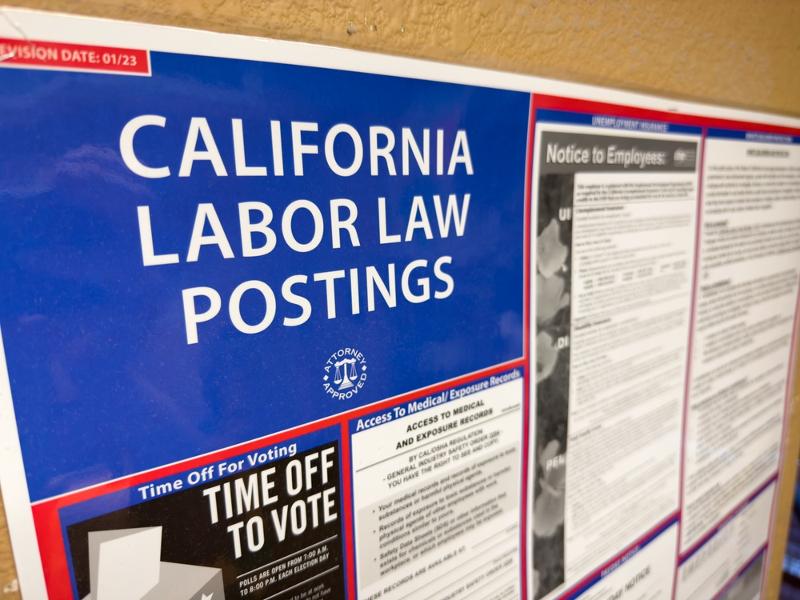
The impact of California’s new fast-food wage law is rippling beyond the restaurant business to other industries in the state, triggering protests from groups that have little to do with selling food.
One, the California Business and Industrial Alliance (CABIA), ran a full-page ad in the Thursday edition of USA Today that details how the state’s $20 minimum wage for fast-food employees is hurting the economy. It’s a digest of recent news stories about the extreme measures restaurant employers have taken to counter the impact of the 25% hike in the pay floor.
The compiled snippets range from the elimination of 73 delivery-driver positions by a Round Table Pizza franchisee to the shutdown of 48 Rubio’s units and the automation of salsa making by El Pollo Loco.
CABIA’s connection to the fast-food business is distant at best. It was formed in 2017, or six years before the pay increase was approved, specifically to muster resistance to a state law known as PAGA, or the Private Attorneys General Act. The measure, passed in 2004, encourages employees to alert California’s Department of Labor about labor-law infractions by their employers. If the department chooses not to pursue legal action against the accused business, the reporting employee can sue, with any proceeds from a win shared with other affected workers and the state.
The option is being used to go after fast-food businesses that are suspected of violating AB 1228, the landmark bill that mandated the $20 fast-food wage and set up a panel called the Fast Food Council to set subsequent raises. But that’s not the only reason CABIA is complaining publicly about the aftereffects of the hike, says the group’s president and founder, manufacturing veteran Tom Manzo.
“It’s a huge concern for members,” he told Restaurant Business. “Let’s suppose we do not have a member who owns a fast-food franchise. But we certainly have small manufacturing companies as members. And one of the fast-food franchises is across the street. Now they have to start raising their minimum wage if they want to compete.”
In fact, says Manzo, some restaurants and bars are members, but they tend to be small operations, not franchisors or large franchisees. Its roster probably runs in total to 500 operations across all industries within the state, he adds.
“We felt that maybe a different voice needed to be heard,” Manzo continued. “In the last 10 to 15 years, there’s been no pro-business bill passed in California. It’s all been for the employee. Nobody’s thinking about the small to medium-sized businesses.
AB 1228 and the new fast-food wage it established are only part of that onslaught, he says, warning that the topic tends to get him, as a medium-sized manufacturer himself, all worked up. “We thought we had to bring it to everyone’s attention. A lot of people are afraid to speak out against the governor, against a lot of the legislators, against the unions. We want to have a seat at the table.”
If not, “they’re going to bankrupt the state,” he declared.
The USA Today ad spotlights 12 situations where a restaurant operation took action or vowed to do so in response to AB 1228. They range from Fosters Freeze to the San Francisco independent Bar Moruno to franchisees of McDonald’s, Burger King, Subway and Cinnabon/Auntie Anne’s.
CABIA intends to keep popularizing the impact of the law, even as it addresses its core mission of opposing PAGA and complicated regulations that can lead to PAGE-sparked lawsuits.
“The small to medium-sized guy is continuing to get hammered here,” says Manzo. “How much more can we afford?”
Members help make our journalism possible. Become a Restaurant Business member today and unlock exclusive benefits, including unlimited access to all of our content. Sign up here.
